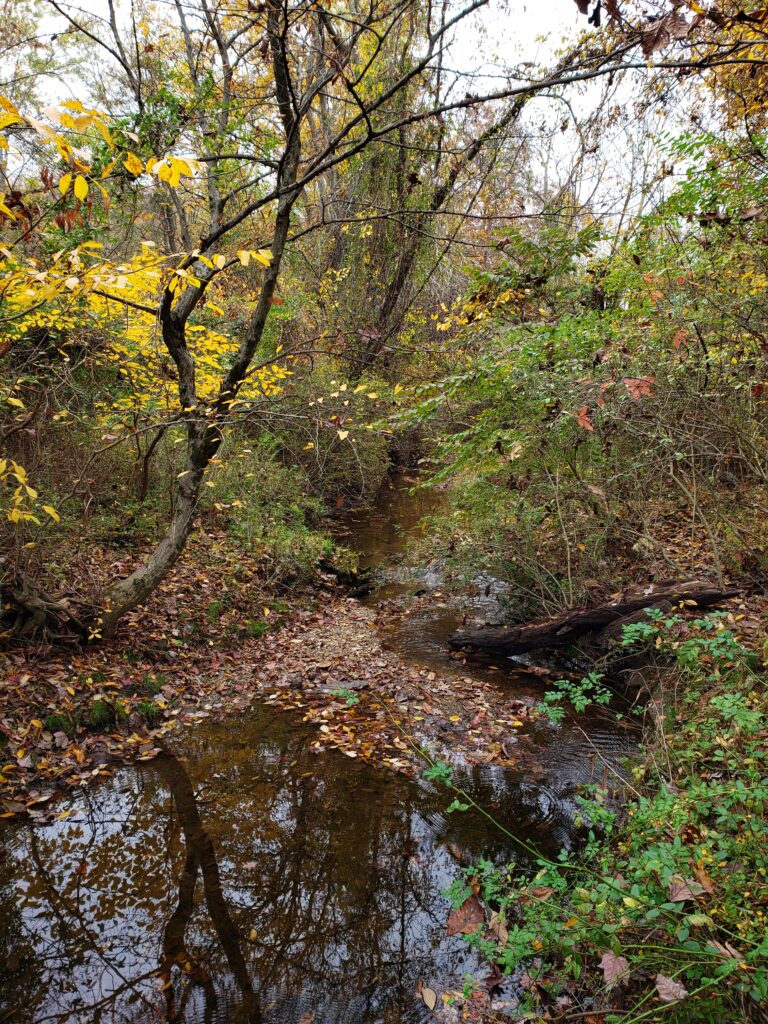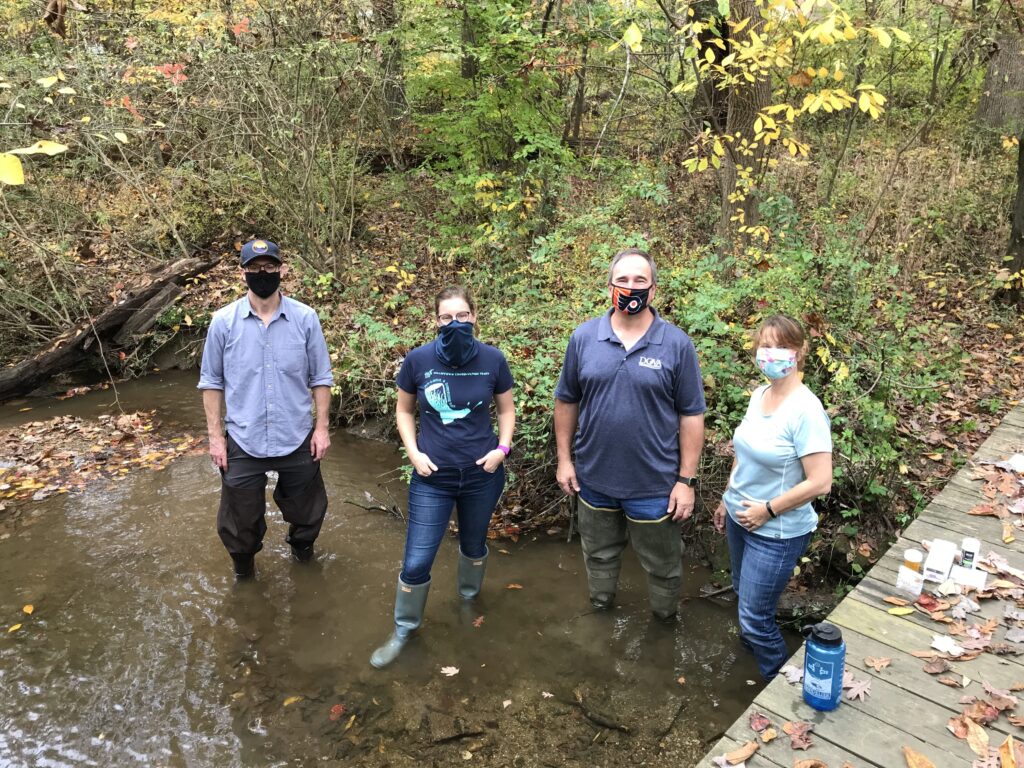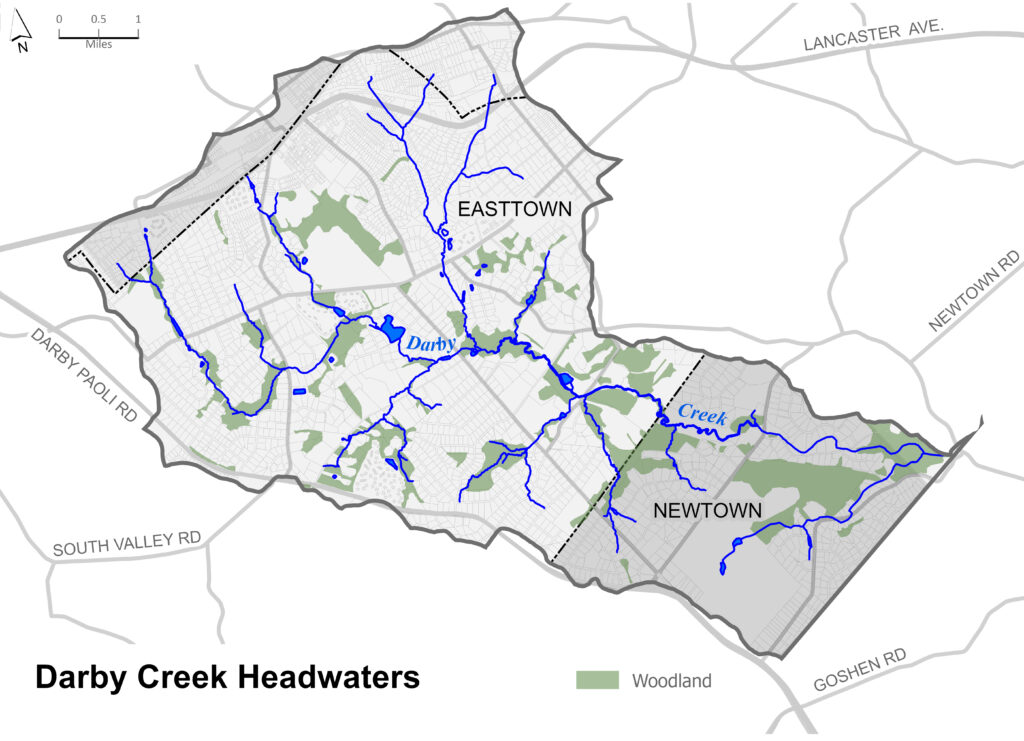The Watershed Protection Program has teamed up with Darby Creek Valley Association (DCVA) and Stroud Water Research Center to create a citizen science water monitoring program in Darby Creek! This collaborative project aims to create a network of training and mentoring opportunities to empower the neighbors of Darby Creek to collect high quality stream data and become water advocates for their community. The long-term goal of this project is to use the information collected from Darby Creek to advise restoration decisions, like choosing the most effective location to improve riparian buffers or the best place to install a rain garden to slow down storm water entering the stream. Detailed monitoring data will also help to identify pollution sources and areas of the landscape that pose a risk to watershed health and integrity. Cultivating a stronger understanding of the waterway takes time and effort, and we are looking to the community for help!
Training for this program will focus on safety, data quality, and education on watershed ecology and the influence of humans on waterways. Individualized training will be provided to each volunteer to ensure that every person is confident in safety protocols and how to collect high quality data and water samples. In addition, volunteers will learn more about how human activity and landscape development affects the health of waterways beyond the borders of the headwater region. The creation of a volunteer network will provide a platform for volunteers to become stream advocates who are knowledgeable about current issues in the watershed and can speak to both the needs of the waterway itself, as well as the surrounding communities.
While the Trust is focusing on the headwaters of Darby Creek, our partnership with DCVA ensures that this program is being implemented throughout the entire Darby Creek Watershed. This whole-watershed approach will provide opportunities to learn about how the waterway changes as it moves downstream and will highlight challenges that local communities face such as flooding, thermal pollution, freshwater salinization, and erosion and sediment problems and will provide a foundation to address those issues. The data we collect will help address these concerns starting at the origin of the stream, right in the Trust’s program area. Our waterways are a valuable part of our environment and are a reflection of the health of the entire landscape – the more we understand how they are being impacted by human activity (and protected by highly valuable forests and wetlands), the more effective we can be at preserving and restoring them.
We are looking for volunteers! To learn more about this program, email lbm@wctrust.org, and to become a volunteer, contact director@dcva.org.

Darby Creek. Photo by Sue Miller,
Darby Creek Valley Association.
Darby Headwaters Team.
Photo by Evan Hunt.

